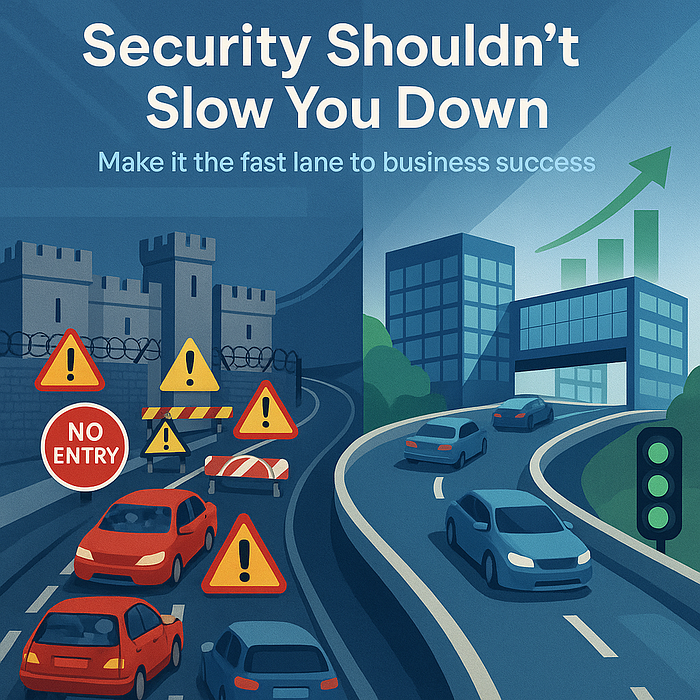Screen privacy protection - a must have

In our increasingly connected world, many conduct business and handle sensitive information on the go. Whether on the train, at a café, or waiting in an airport lounge, our reliance on mobile devices, tablets, and laptops has grown to the point where they're practically extensions of ourselves. But we often overlook the real threat posed by those around us—specifically, the ease with which someone can look over our shoulder, intentionally or not, and glimpse confidential information. It might sound innocuous initially, but this seemingly simple act of "shoulder surfing" can have serious consequences for individuals and organisations.
Picture this: you're sitting on the train after a long day, catching up on work emails, maybe reviewing some financial data or working on a project that involves sensitive client information. It's crowded, and you're focused on your screen. A fellow passenger sits beside or behind you, their gaze drifting across your screen, where they casually pick up details they shouldn't have access to. In just a few moments, they might learn your company's name, gain insight into a project you're working on, or even glimpse sensitive financial or personal information. It’s all too easy.
This isn't just hypothetical. In the UK and Europe in 2024, we're seeing heightened awareness of privacy breaches and information leaks, particularly with GDPR putting the onus on companies to protect personal data. While many organisations focus heavily on network security, encryption, and secure logins, physical privacy is often overlooked. And yet, a data breach caused by someone simply reading over your shoulder can be just as damaging as one caused by malware or a phishing attack.
The more mobile our work becomes, the more we're exposed to these risks. On a typical commuter train, you may find dozens of people using their devices at any given time, many working with information that could be valuable to someone with malicious intent. It could be a hacker looking for easy prey or someone curious who unintentionally sees something they shouldn't. Either way, the information is out there and out of your control once it has been seen.
Privacy screens may sound like a small, almost trivial solution to this issue, but their importance cannot be overstated. These simple add-ons, which attach to your device's screen and limit visibility to anyone not looking directly at it, can provide a significant layer of protection. In places like London, where the density of people working in close quarters is high—whether on public transport or co-working spaces—the risk of shoulder surfing is ever-present. A privacy screen blocks lateral views, so even if someone sits beside or behind you, they’ll only see a black or obscured image.
For professionals handling sensitive data, such as those in finance, law, or healthcare, the consequences of a leak due to shoulder surfing can be catastrophic. Imagine a solicitor working on a confidential case or a doctor reviewing patient records on their tablet while commuting. Without protection, anyone nearby could potentially glimpse information that should remain private.
In Europe, where GDPR mandates strict controls on managing and protecting personal data, a breach doesn’t have to come from a sophisticated cyberattack. It could very well originate from something as simple as someone glancing at your screen. And the fines for GDPR breaches, as many know, can be substantial, not to mention the reputational damage that comes with them.
Moreover, this isn’t just about personal or corporate data. With the rise of social engineering attacks, any information can be a clue for an attacker. A company name, an email signature, or even a client’s logo on a document could be enough to help a hacker piece together an attack. They don’t need to see your password to be dangerous—they need enough context to launch a phishing attack or impersonation attempt.
In the UK in 2024, we’re seeing more discussions around the importance of cybersecurity in public spaces, not just from a technical standpoint but from a behavioural one. Organisations are beginning to encourage employees to be more mindful of their surroundings, and privacy screens are increasingly part of the conversation.
It's a simple habit to develop—using a privacy screen when working in a public space. Just as you wouldn’t leave your laptop unlocked and unattended in a café, you shouldn’t expose your screen for anyone to see. This is about forming new habits to protect the ever-growing amount of data we carry with us. As our devices become more powerful and our work more mobile, the risks associated with shoulder surfing will only increase.
To wrap it up, it’s essential to consider the physical aspects of data security, not just the digital. Privacy screens may seem like a small step, but they represent a critical line of defence in a world where even the simplest glance can lead to serious consequences. Be mindful of your surroundings, take practical steps to protect your information, and encourage your colleagues to do the same. After all, safeguarding your data doesn’t stop at encryption and firewalls—it’s also about being aware of who might be watching.




